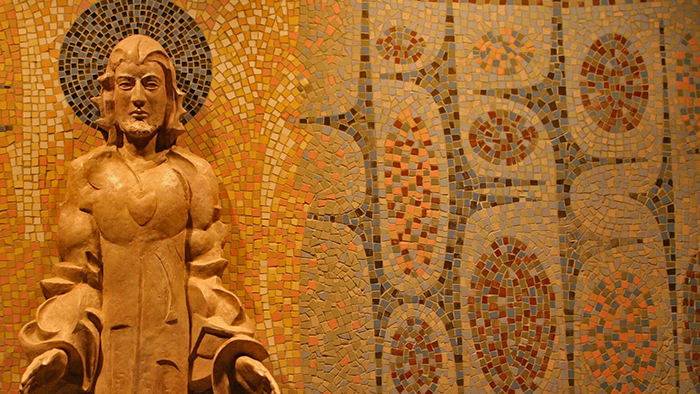
Many of those that Jesus encountered in his lifetime on earth were confused about his identity. Why does he refer to himself as the “Son of Man?” In his illuminating article, “Born into the Ordinary,” Fr. Ron Rolheiser writes that when Jesus was on earth, virtually no one believed he was the Messiah precisely because he was so ordinary, unlike what they’d imagined God to be. People were looking for a Messiah. When Jesus, the Christ, finally did appear, they were disappointed. They’d expected a superstar, a king, a miracle worker, someone who would, by miracle and hammer, vindicate good, destroy evil, and turn the world rightfully upside down. Jesus didn’t live up to those expectations. The expected Messiah would not have been born in a barn, preaching meekness and gentleness, unwilling to use power in a forceful way. There was a tiny hammer and a few miracles. Mainly, there was ordinariness. Curiously, Scripture refuses to describe what Jesus looked like. It never tells us whether he was short or tall, with a beard or without, had light or dark hair, or blue or brown eyes. Neither does it ever assign to him anything extraordinary in terms of psychological countenance: for example, it never tells us that when Jesus entered a room, his eyes were so penetrating and his gaze so awesome that people knew they were in the presence of something extraordinary. No, Scripture doesn’t describe him because, in terms of physical appearance, Jesus wasn’t worth describing; he looked like everyone else. Even after the resurrection, he is mistaken for a gardener, a cook, or a traveler. People had trouble recognizing Jesus as God incarnate because he was so ordinary, so immersed in the things they took for granted. He was just a carpenter’s son and looked like everyone else. We read in 1 John 4:7-16: “God is love and whoever abides in love abides in God and God abides in him/her.” Love is a thing that happens in ordinary life, in kitchens, at tables, in workplaces, in families, and in the flesh. God abides in us when we abide there. The Christ-child is also to be found in church, in the sacraments, and in private meditations (for these, too, are ordinary). All of these are ordinary, and the incarnation crawls into them and helps us, there, to abide in God, who abides in the ordinary.
